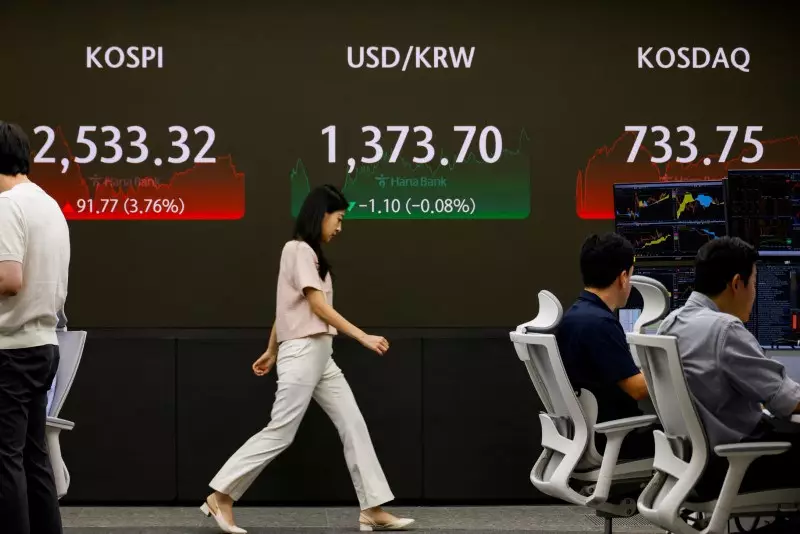In a recent global financial markets rout, South Korea’s retail investors stood out by defying the trend and pouring more funds into U.S. stocks. This behavior is not new and has been observed over the years, fueled by the perceived value proposition in the U.S. market compared to the domestic market. Retail investors in South Korea have been particularly interested in companies like Nvidia, Tesla, and Apple, driven by the global AI-frenzy.
One such investor, Sunny Noh, has been investing heavily in Tesla and believes that the recent market plunge presents a long-term buying opportunity. This sentiment is shared by many retail investors who are dissatisfied with the “Korea discount” in their domestic market, characterized by lower shareholder returns and depressed valuations, especially in comparison to other markets like Taiwan, Japan, and the U.S.
The lower dividend payment ratios and price-to-book ratios of South Korean companies compared to their counterparts in other countries have been a significant factor driving retail investors to seek investment opportunities overseas. Companies like Samsung and SK Hynix, which are giants in the South Korean market, have not been at the forefront of the AI-boom, further disappointing investors.
The disparity in returns and growth potential between South Korean companies and their international counterparts has led to a significant outflow of funds from the domestic market to overseas markets. Retail investors, known as “ants” due to their collective force in the market, have been actively investing in foreign markets, with a particular focus on U.S. stocks.
The Yoon Suk Yeol government’s ambitions to boost stock valuations in South Korea face challenges as retail investors continue to shift their focus to foreign markets. The planned capital gains tax, set for next year, is expected to further discourage investors, although there have been promises to scrap it. Retail investors like Oh Jeong-min, who experienced losses during the recent market shakeout, are reconsidering their investment strategies and looking towards the U.S. market for potential growth opportunities.
The Value-up Programme proposed by the government aims to revitalize investment in the domestic stock market but faces skepticism due to the governance structures of South Korea’s conglomerates. The opacity and complex ownership dynamics within family-run conglomerates, known as “Chaebol”, present challenges for the effectiveness of the proposed program.
Global figures like Elon Musk have acknowledged South Korea’s growing presence in the investment landscape, particularly in U.S. stocks. With large holdings in companies like Tesla, Nvidia, and Apple, South Korean retail investors are making a significant impact on the U.S. market. Despite challenges in the domestic market, retail investors like Oh remain optimistic about the potential for growth and returns in U.S. stocks.
The trend of South Korean retail investors flocking to U.S. stocks reflects a broader sentiment of dissatisfaction with the domestic market’s performance and potential. Government initiatives and global market trends will play a crucial role in shaping the investment landscape for retail investors in South Korea in the coming years.

